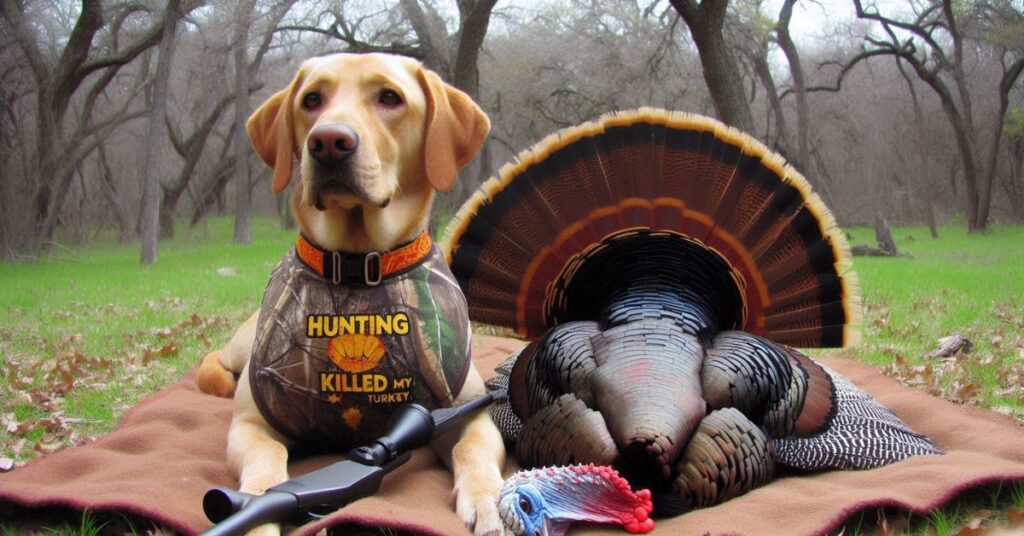Hunting dog killed my7 turkey texas may be emotionally and distressing to lose a turkey to a hunting dog, particularly if you grow turkeys for your own use or for sale. Such occurrences give rise to ethical, legal, and financial issues in Texas. You can handle the issue more skilfully if you are aware of your rights, dog owners’ obligations, and preventative actions. This book gives you a thorough rundown of what to do in Texas if a hunting dog kills your turkey, the regulations that apply, and how to avoid this happening again.
Immediate Actions to Take
1. Ensure the Safety of Your Remaining Livestock
Securing the other turkeys should be your top priority if a hunting dog has gotten into your land and killed one of them. To avoid more damage, move them to a secure container. Furthermore, if the dog is still on your land, approach it with caution because some dogs may become hostile if they are fended off.
2. Document the Incident
Proper documentation is crucial for any potential claims or legal action. Take clear photographs and videos of the following:
- The deceased turkey
- Any visible injuries on other turkeys
- The dog involved (if possible)
- The area where the attack occurred
- Any damage to property (fences, coops, etc.)
Make note of the date, time, and location of the incident. If there are any witnesses, gather their statements as well.
3. Identify the Dog and Its Owner
Notify the neighbour or a recognised hunter about the occurrence if the hunting dog is theirs. In certain situations, owners might not be aware that their dog has harmed you after entering your property. Look for tags with contact details if the dog is wearing a collar. Report the incident to animal control or the local authorities if you are unable to identify the owner.
Texas Laws on Livestock Protection
In Texas, turkeys are considered personal property, and if an animal, such as a hunting dog, hurts one, the owner is entitled to compensation. The Texas Agriculture Code and municipal animal control laws give guidelines for responsibility and restitution.
Also Read: https://everscroll.org/category/blog/
1. Dog Owner Liability
If a dog harms or kills cattle, the owner may be held accountable under Texas law. The owner may be subject to more severe legal repercussions if the dog has a history of violence or assaults on livestock.
According to Section 143.002 of the Texas Agriculture Code, livestock owners are entitled to keep their animals safe against dog attacks. This implies that you might be able to legally demand damages or take preventative action.
2. Compensation for Damages
If a dog kills your turkey, you may be entitled to compensation for the financial loss. Compensation can include:
- The market value of the turkey
- Any veterinary expenses for injured turkeys
- Costs of repairing damaged enclosures or fencing
- Lost income if turkeys were intended for sale
If the dog owner is cooperative, you may be able to settle the issue amicably. If they refuse responsibility, you may need to take legal action by filing a claim in small claims court.
3. Reporting to Authorities
Report the incident to the sheriff’s office or local animal control if the owner is reluctant or you are unable to identify them. This can help stop such events in the future and create a record in case more legal action is required.
Preventing Future Attacks
1. Strengthening Enclosures
Protecting your turkeys from future attacks is essential. Consider the following measures:
- Install higher fences and secure gaps where dogs might enter.
- Use reinforced wire mesh to prevent dogs from pushing through or digging under enclosures.
- Add motion-activated lights or alarms to deter unwanted animals.
2. Community Awareness and Communication
Educating neighbors and local hunters about responsible pet ownership can help prevent future incidents. If you live in an area where hunting dogs frequently roam, consider:
- Speaking with dog owners about keeping their pets under control
- Posting warning signs around your property
- Joining a local livestock owners’ group to share information on pet-related issues
3. Using Deterrents
Various deterrents can help keep hunting dogs away from your property, such as:
- Scent repellents that discourage dogs from entering
- Noise-emitting devices designed to scare off unwanted animals
- Guard animals, such as livestock guardian dogs or geese, which can alert you to intruders
Legal Steps If Compensation Is Denied
1. Gather Additional Evidence
If the dog owner refuses to compensate you, compile as much evidence as possible, including:
- Photos and videos of the incident
- Witness statements
- Veterinary bills (if applicable)
A record of communication with the dog owner
2. Consult an Attorney
A lawyer specializing in animal law or property damage can guide you through the legal process. They can help you file a claim for damages and represent you in court if necessary.
3. File a Small Claims Court Case
You can bring a lawsuit in small claims court if the dog owner denies responsibility and the harm is substantial monetarily. Small claims courts in Texas usually resolve property damage cases, including losses to livestock, quickly and with comparatively little legal expenses.
- For Dog Owners: Preventing Hunting Dogs from Attacking Livestock
If you own a hunting dog, it’s important to ensure it does not pose a threat to livestock. Responsible pet ownership includes:
- Training your dog to recognize boundaries and avoid domestic animals
- Keeping dogs leashed or contained when not hunting
- Ensuring your dog has identification tags in case it wanders
Conclusion(Hunting dog killed my7 turkey texas)
It can be quite upsetting to lose a turkey to a hunting dog in Texas, but you can deal with the situation more skilfully if you are aware of your rights and take the necessary actions. You may safeguard your cattle and promote responsible pet ownership in your community by offering compensation, taking legal action, or implementing preventive measures. Follow the following instructions if you run into a similar circumstance in order to protect your property, hold the guilty persons accountable, and stop such instances in the future.

